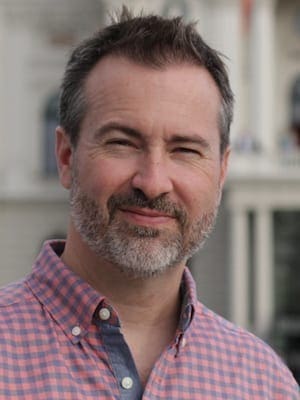Editor’s note: The documentary “A Place for All: Faith and Community for Persons with Disabilities” is currently airing on ABC-TV stations. Click here for local listings or here to order it on DVD.
Most laypeople and perhaps most clergy haven’t thought much about how their houses of faith welcome people with disabilities. Maybe the welcome isn’t much of one at all.
A new hour-long documentary, “A Place for All: Faith and Community for Persons with Disabilities,” puts this issue up for analysis. On hand to discuss and illustrate the challenges and opportunities afforded by ministering to people with disabilities are leaders from Jewish, Islamic and Christian faith traditions.
Some of them are themselves disabled – like Bishop Peggy Johnson and Rabbi Darby Jared Leigh. Using the word “disabled” to describe these individuals seems almost laughable after meeting them on camera, for they come across as some of the most able people you’d likely ever meet.
The bishop and rabbi have their own unique stories, but each is told in support of a larger theme: making sure the disabled among us are able to practice their faith in community.
“Being present doesn’t mean being included,” says the narrator in “A Place for All.” Too often, however, being present is itself an obstacle – literally, in some cases. No elevators, no ramps, narrow doors – the problems are varied, as are responses to them.
“We have to remove barriers,” says one rabbi, even if it’s costly and difficult. Another Jewish leader bemoans the fact that it took the government to point out – even to houses of faith – the necessity of things like wheelchair ramps.
“A Place for All,” from the accomplished filmmaking team of Debra Gonsher Vinik and David Vinik, features the efforts of some religious bodies to welcome the disabled among us. The Islamic Society of North America employs signers for its plenary sessions. A synagogue puts in an elevator to give its members access not only to the building, but to the stage as well.
The general idea pervades that if you don’t really value people with disabilities, you won’t budget for accommodating them. And Rabbi Leigh, himself deaf, suggests that choosing not to accommodate others actually hurts the congregation as well as the disabled person, for the congregation is missing out on gifts it would otherwise receive.
People with disabilities don’t need some sort of exemption from faith practice, which is too often the philosophy adopted by the larger community. Instead, they need to be included.
The Torah says each person has a divine spark. Christian scriptures contain story after story of healings and breaking down stigmas. The Quran talks about people with disadvantages.
“Unfortunately,” the documentary says, “theology hasn’t always translated into practice.” It should.
One of the documentary’s strengths is its profiling of various individuals. Take Max, whose Jewish nursery school accommodated his cerebral palsy and incorporated those challenges into its curriculum and ethical formation. One of the results of the school’s changes: Everyone grew, not just Max.
The strength of some documentaries lies in their ability to shine a light into dark corners. In “A Place for All,” the dark corner it explores may very well turn out to be your own house of faith.
This holiday season, let the light shine in and the image of God be seen in all.
Cliff Vaughn is managing editor and media producer for EthicsDaily.com.
The documentary’s Web site is here.

